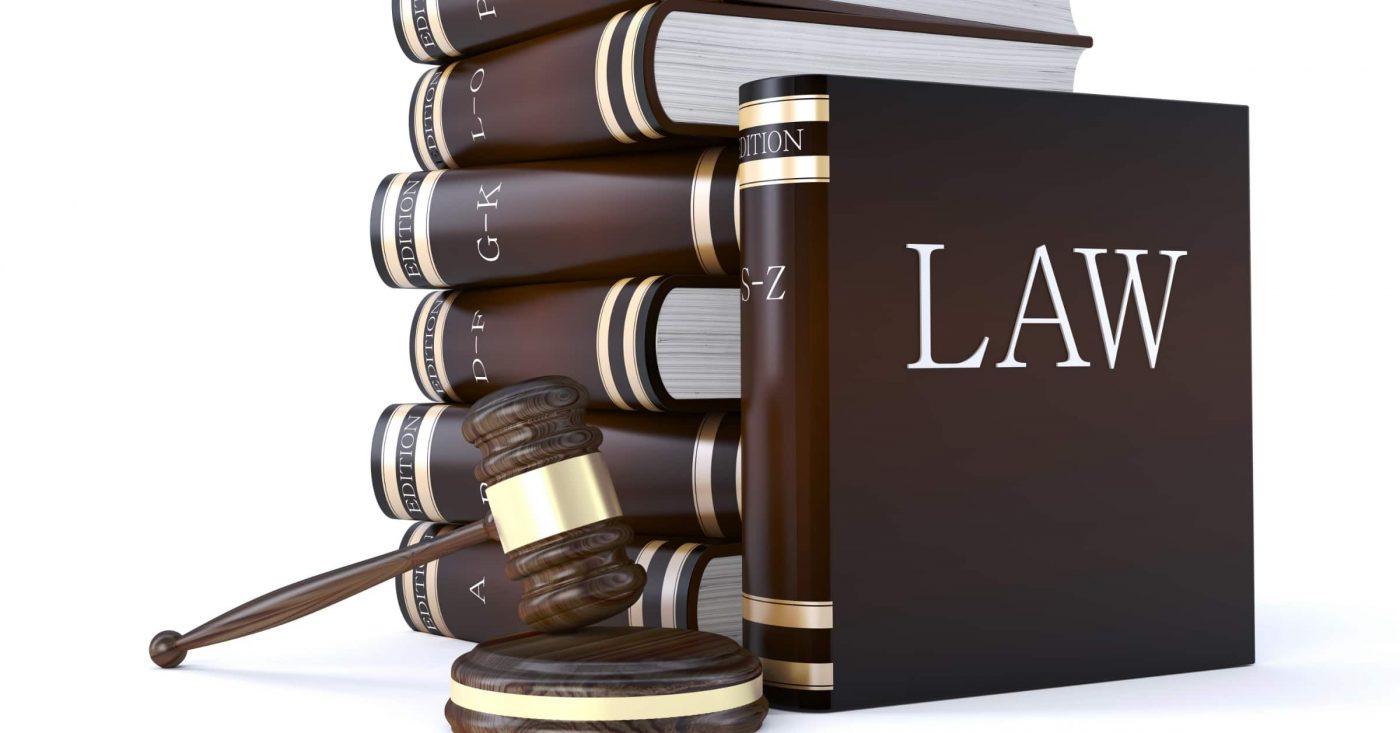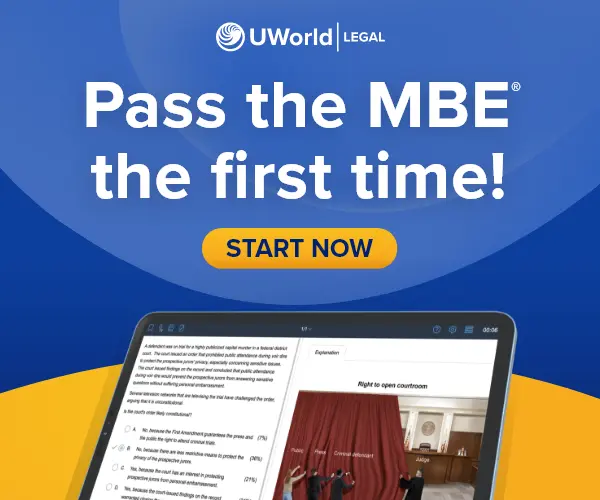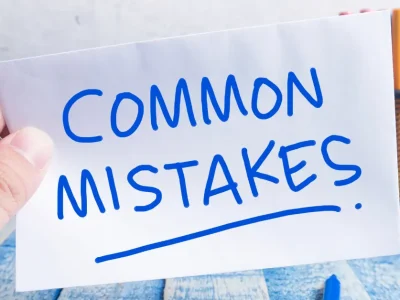Not only is the MBE the most significant component of the bar exam with a 50% weighting in most jurisdictions, but it is also the most rigorous. While one can argue that each of the seven MBE subjects is difficult in its own right, there are varying degrees of difficulty, according to law graduates. Test takers might disagree on which highly-tested MBE topics are the hardest to master, but this article will guide you through the most notorious subjects.
Naturally, each MBE subject offers its fair share of challenges, so determining the “hardest MBE subject” is often subjective. Every bar exam candidate is unique in their own right. A subject that one candidate considers easy may be regarded as difficult by another.
Nevertheless, many future attorneys who have taken or are currently preparing for the bar exam seem to agree that the following three subjects are the most challenging:
1. Real Property
Students find Real Property difficult because the 25 scored questions that appear on the MBE require detailed knowledge of Real Property, covering the following topics:
- Ownership in Real Property
- Rights in Real Property
- Real Estate Contracts
- Mortgages/Security Devices
- Titles
The nuance of Real Property content on the MBE will leave anyone intimidated. Many test-takers claim that this is the most difficult MBE subject because their 1L Real Property class didn’t cover many of the legal rules tested on the exam. This is true even for test-takers who studied mortgages or secured transactions in law school.
Many students find future interests–especially the pesky Rule Against Perpetuities (RAP)–complex and tricky to navigate because the rules are so technical. But don’t panic; there are ways to conquer RAP on the MBE and other factors working in your favor that warrant remaining optimistic. For starters, each topic carries an equal weighting, so even if you don’t master one, you can still perform well on the MBE.
How to Approach Real Property Questions
Use a methodical approach to disarm the notoriously complex fact patterns and archaic vocabulary. Read the call of the question first to identify what the question is asking. Then highlight key facts as you carefully read through the question stem, picking up on clues that can help you hone in on the issue(s) tested and the correct answer. For example, scrutiny of the fact pattern could reveal that the jurisdiction has a recording act with the words “without notice, who shall first record,” indicating that a race-notice statute is at play.
Just remember to trust yourself and your preparation. Ultimately, getting the vocabulary down, memorizing the rules and when to apply them, and reviewing plenty of practice questions will help ease your Real Property anxiety. Below are some helpful Real Property study resources courtesy of UWorld Legal:
Quick Tips:
- A Reminder on Remainders
- Deciphering Recording Acts
- How to Oust a Cotenant
- How to Distribute Foreclosure Sale Proceeds
Sample Questions:
2. Contracts
Navigate any online forum where law students confer with one another, and you’ll soon realize that Contracts is often reported as the most complicated MBE subject. These fact patterns tend to be lengthy, for starters, so there’s a lot to read and read carefully. Contracts also requires a significant amount of technical knowledge and understanding of legal terminology.
The questions tested on this subject focus on the following topics, tested at varying frequencies:
- Formation of Contracts
- Performance, Breach, and Discharge
- Defenses to Enforceability
- Contract Content and Meaning
- Remedies
- Third-party Rights
“Formation of contracts” and “performance, breach, and discharge” are tested at the highest frequency. Combined, they account for half of the Contracts questions on the MBE, so be sure to invest ample time doing practice questions on these topics!
How to Approach Contracts Questions
While Contracts is certainly distinct from Criminal Law, you’d be wise to approach Contracts questions like a detective. First, look at the call of the question to identify the issue. Next, determine whether the common law or the UCC applies (hint: consider whether the contract involves the sale of goods). Then, analyze the facts to determine whether a contract has been formed and which remedies are available (if any).
Don’t be intimidated by a lengthy question stem that reads like an essay. Tackle each sentence one at a time so that you can focus on critical information and key phrases. This will help you spot important facts and identify exactly what the question is asking.
Keep a keen eye out for transition words or phrases such as “if,” “but,” “as long as,” etc. These simple words and phrases are critical to understanding the nuances of a contract question because they often prescribe the conditions of the contract issue. Similarly, take note of obvious legal jargon such as “promise” and “intent” as these terms often relay information pertinent to the contract issue.
Below are some helpful Contracts study resources courtesy of UWorld Legal:
Quick Tips:
- Remedies When There Is No Contract
- Damages for Breach of Contract
- Mailbox Rule – Contract Law
- Battle of the Forms: Can an Acceptance Revise or Add Terms?
Sample Question: Statute of Frauds
3. Civil Procedure
Added to the MBE in 2015, Civil Procedure is the newest MBE subject and yet already considered by many bar applicants to be the hardest. Some Civil Procedure questions can be lengthy, and the subject’s relative novelty means there aren’t nearly as many released MBE questions for prep courses to use. But don’t despair; you can still adequately prepare and conquer Civil Procedure.
First, below are the Civil Procedure topics tested on the MBE:
- Jurisdiction and Venue
- Pretrial Procedures
- Motions
- Law Applied by Federal Courts
- Jury Trials
- Verdicts and Judgments
- Appealability and Review
With a 22.2% weighting each for Jurisdiction and Venue, Pretrial Procedures, and Motions, focusing your study efforts on these topics is a sound strategy.
How to Approach Civil Procedure Questions
As with other subjects, it’s crucial to scrutinize the question to discern which rules apply to the question at hand. Look out for tricky concepts such as impleader, waiver, and preclusion. And remember to keep track of important deadlines (see blog article in “Quick Tips” section below).
To ensure that you are thoroughly prepared, strive to master the concepts tested and memorize the rules. For example, for Jurisdictions and Venue, know how to identify when the question is testing on personal jurisdiction versus subject-matter jurisdiction. For Motions, understand what defenses can be presented during a proceeding and at which stage. For example, a motion to dismiss based on personal jurisdiction must be filed before or asserted in answer. If not, an objection to personal jurisdiction is waived.
Below are some helpful Civil Procedure study resources courtesy of UWorld Legal:
Quick Tips:
- Erie Doctrine and Choice of Law
- Going Through the Motions
- Keeping Track of Deadlines
- Appellate Standards of Review
Sample Questions:
So there you have it; the top three MBE subjects that bar examinees often consider the hardest! But just because these MBE subjects are challenging doesn’t mean that you can’t master them. With the right study plan and prep provider, you can perform well on these subjects and ace the MBE. We wish you the best of luck!
Give yourself the best chance of success on the MBE with the UWorld MBE QBank.




